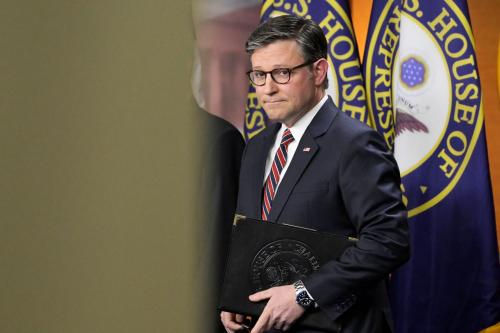Deficit hawks are grounded again. President Obama’s budget for 2013 is yet another failure to seize an opportunity to put down a serious marker that could lead to real, bipartisan progress on the deficit. Instead, the president has offered a budget that is flawed in at least three respects.
First, although candidate Obama pledged to end the long reign of budget tricks in the nation’s capital, his 2013 budget contains a big one. He claims $850 billion from winding down the wars in Iraq and Afghanistan. But you can’t save money on war spending that was already scheduled to decline.
Second, the president increases several taxes in the context of increased spending. The fight for increased taxes — which most analysts admit must be part of a bipartisan plan to fully control the deficit over the next decade and beyond — could get further if the budget used every penny of new taxes for deficit reduction. But because the president proposes to increase taxes in a budget that also contains new spending initiatives, Republicans are sure to dismiss the budget out of hand. Republicans have certainly not been forthcoming on the role of tax increases in a bipartisan deficit solution, but the Obama budget plays into the long-standing Republican claim that Democrats want new revenues only so they can increase spending.
An associated problem with increasing taxes while simultaneously increasing spending is that once the tax increases have been used at least in part to finance spending increases, they will not be available for a future budget deal that actually makes substantial progress in reducing the deficit. Eventually, both sides are going to have to give up part of their preferred tax policy, but the president’s 2013 budget does not move us any closer to a compromise.
Third, although the president proposes some welcome savings in both Medicare and Medicaid, he continues to avoid any hint that he would be open to structural changes in the Medicare program. There is widespread agreement that the single biggest cause of the nation’s growing deficit is the rapid increase over the next few decades in the number of people joining Medicare and the rapid rise of per person spending on health care for the elderly. In December, House Budget Chairman Ryan and Senator Wyden proposed a serious plan that holds real promise for controlling Medicare costs. Their proposal is similar to a bipartisan proposal offered by budget guru Alice Rivlin and former Republican Senator Pete Domenici. The president should have used his budget proposal to indicate a willingness to at least consider some version of these bipartisan proposals to control Medicare spending.
It now seems all but certain that the president and Congress will waste another year without making serious progress on the federal deficit. Thus, the nation moves a step closer to the ugly fate that awaits every nation that fails to match its desires and resources.
The Brookings Institution is committed to quality, independence, and impact.
We are supported by a diverse array of funders. In line with our values and policies, each Brookings publication represents the sole views of its author(s).



Commentary
Op-edAnother Disappointing Budget
February 14, 2012